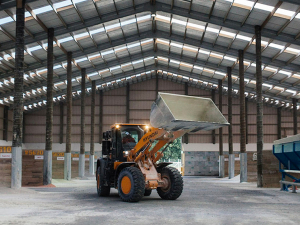The co-op will pay its 18,500 farmer shareholders a rebate of $45 per tonne for the financial year ended 31 May 2019, returning $57 million to its more than 18,500 farmer-shareholders.
Ballance says its financial results are the product of an unwavering focus on supporting farmers, and the evolution of farming, as a strength for this country.
Chairman, David Peacocke says a year-on-year lift in performance since FY2016 has been built on a collaborative approach, working with selected partners in New Zealand and suppliers around the world.
“Everything we do is geared to ensuring Kiwi farmers have access to the very best nutrients and advice to achieve outstanding agronomic results, stay competitive globally and drive sustainability in their businesses.
“This is a hallmark and what a cooperative is all about – supporting our farmers and helping them adapt and evolve so that they’re future-ready,” Mr Peacocke says.
Total sales for the year – including nutrient products, animal feeds and industrial ingredients – were flat on FY2018 at 1.64 million tonnes, with the manufacturing margin achieved against rising international urea prices being a key contributor to Ballance’s financial performance this year.
Peacocke says increased retentions of $12 million are earmarked for accelerating the development of high-value digital platforms and services, ongoing investment in the cooperative’s distribution network to deliver improved service capability, and expansion of topdressing services particularly to meet demand for precision aerial application enabled by Spreadsmarttechnology.
Ballance’s re-investment capex of $87 million in FY2019 is more than double the typical spend for the cooperative – reflecting a “sustained programme of investment to evolve both our bricks and mortar shopfront, and also our ecommerce capability and tools for our customers”, says chief executive, Mark Wynne.











